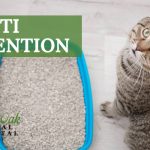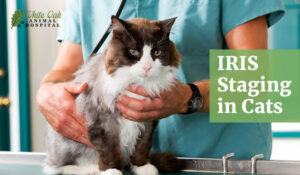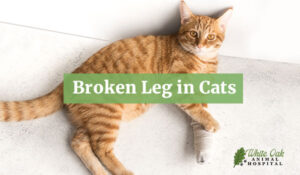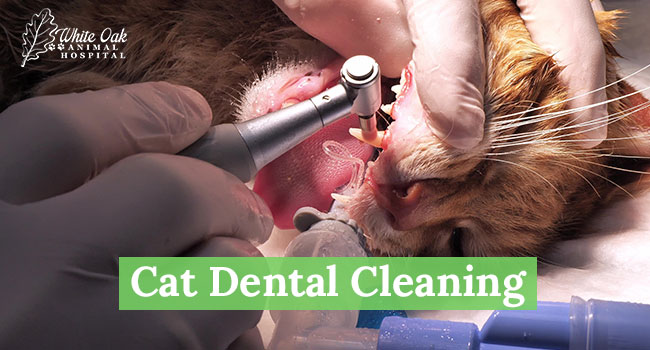
Cat dental cleaning is an essential part of maintaining your pet’s overall health. Just like humans, cats can suffer from dental issues such as plaque buildup, gum disease, and tooth decay. Regular cat dental cleaning helps prevent these problems and ensures your cat remains healthy and happy.
What exactly is cat dental cleaning? It involves the removal of plaque and tartar from your cat’s teeth to prevent dental diseases. This process can be performed both at home and by a professional veterinarian. At home, you can use special toothbrushes and toothpaste designed for cats. Professional cleanings, however, are more thorough and often require anesthesia to clean below the gum line and on all surfaces of the teeth.
There are many benefits to cat dental cleaning. Regular cleanings help prevent bad breath, tooth loss, and infections that can spread to other parts of the body. Dental health issues in cats can lead to pain, difficulty eating, and even systemic health problems affecting the kidneys and heart.
Having a regular cat dental cleaning routine is essential for their well-being. This may vary from daily or weekly brushing to scheduling professional cleanings. Incorporating these steps into your pet care can make your cat’s life comfortable.
Though it may seem like a small part of your pet care routine, cat dental cleaning is still important. It is a straightforward way to ensure your pet’s health and well-being. Remember, a healthy mouth leads to a healthy cat. Regular cat dental cleaning is a simple yet effective way to show your love and care for your feline friend.
Importance of Cat Dental Cleaning
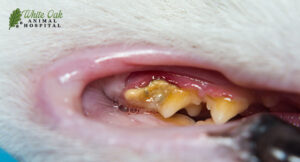 Cat dental cleaning is a crucial part of pet care. Cavities, tartar, and gum disease can be easily prevented. If left untreated, these problems can cause extreme pain and discomfort.
Cat dental cleaning is a crucial part of pet care. Cavities, tartar, and gum disease can be easily prevented. If left untreated, these problems can cause extreme pain and discomfort.
The benefits of cat dental cleaning go beyond just avoiding periodontal disease. This condition involves the buildup of plaque and tartar and can progress to tooth loss and infections that can affect other parts of the body. With proper dental care, many of these health complications can be avoided.
Another important aspect of cat dental cleaning is the elimination of bad breath. While it’s normal for a cat to have occasional bad breath after eating, any persistent unpleasant odor is a sign of serious dental issues. Regular cleanings eliminate bad breath by removing the source of the problem – bacteria.
Furthermore, cat dental cleaning can significantly impact your pet’s quality of life. Dental problems, including pain, can make cats stop eating, leading to weight loss due to malnutrition. Keeping their teeth clean allows them to eat comfortably and maintain a healthy diet.
Cat dental cleaning can help identify other dental problems. A good practice is to take your cat for checkups with your veterinarian to inspect for existing issues that may become serious if left untreated. Early intervention can prevent unnecessary suffering and expensive treatments for your cat.
7 Common Mistakes in Cat Dental Cleaning
Using the Wrong Tools
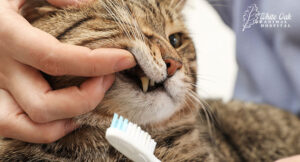 Proper cat dental cleaning requires the use of appropriate tools specifically designed for cat dental care. Using the right toothbrush and toothpaste is essential to maintain your cat’s oral health. Cat toothbrushes are typically smaller and have softer bristles compared to human toothbrushes, making them suitable for a cat’s delicate gums and teeth. Finger brushes are also a popular choice, as they can be easier to maneuver in a cat’s mouth.
Proper cat dental cleaning requires the use of appropriate tools specifically designed for cat dental care. Using the right toothbrush and toothpaste is essential to maintain your cat’s oral health. Cat toothbrushes are typically smaller and have softer bristles compared to human toothbrushes, making them suitable for a cat’s delicate gums and teeth. Finger brushes are also a popular choice, as they can be easier to maneuver in a cat’s mouth.
Equally important is the use of cat-specific toothpaste. Human toothpaste contains ingredients such as fluoride and xylitol, which can be toxic to cats. These substances can cause serious health issues, including gastrointestinal problems and even poisoning. Cat toothpaste, on the other hand, is formulated to be safe if swallowed and often comes in flavors that are appealing to cats, such as poultry or fish.
Using the wrong tools for cat dental cleaning can lead to various problems. Human toothbrushes may be too harsh, causing gum irritation or even damage to the teeth. Additionally, the use of human toothpaste can result in your cat ingesting harmful chemicals, leading to adverse health effects. Therefore, investing in the right dental care products for your cat is crucial for effective and safe cleaning.
Inconsistent Cleaning Routine
Maintaining a regular cleaning routine is essential for effective cat dental cleaning. Consistency in brushing your cat’s teeth can prevent the buildup of plaque and tartar, which can lead to more serious dental issues over time. A regular cleaning schedule helps in keeping your cat’s teeth and gums healthy, reducing the risk of periodontal disease and other oral health problems.
Establishing a routine for cat dental cleaning can be challenging but is crucial for success. Start by introducing the toothbrush and toothpaste gradually, allowing your cat to get used to the tools without feeling threatened. Begin with short, gentle brushing sessions and gradually increase the duration as your cat becomes more comfortable. Consistency is key, so aim to brush your cat’s teeth at the same time each day to create a sense of routine.
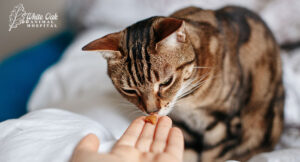 Positive reinforcement can also be beneficial in establishing a regular cleaning schedule. Reward your cat with treats or affection after each cleaning session to create a positive association with the process. Over time, your cat will become more accustomed to the routine, making the cleaning process easier and more effective.
Positive reinforcement can also be beneficial in establishing a regular cleaning schedule. Reward your cat with treats or affection after each cleaning session to create a positive association with the process. Over time, your cat will become more accustomed to the routine, making the cleaning process easier and more effective.
Inconsistent cleaning can lead to the rapid buildup of plaque and tartar, resulting in dental diseases that can cause pain and discomfort for your cat. By maintaining a regular cleaning routine, you ensure that your cat’s oral health remains in optimal condition.
Ignoring Professional Cleanings
While regular at-home cat dental cleaning is essential, it should not replace professional cleanings by a veterinarian. Regular veterinary visits are crucial for maintaining your cat’s overall oral health. Veterinarians have the expertise and equipment to perform thorough dental examinations and cleanings that cannot be achieved through at-home care alone.
Professional cat dental cleanings involve the use of specialized tools to remove plaque and tartar buildup from your cat’s teeth, especially below the gum line where bacteria can accumulate. These cleanings help prevent periodontal disease, tooth decay, and other serious dental issues that can affect your cat’s health.
The frequency of professional dental cleanings depends on your cat’s individual needs. Generally, it is recommended to have your cat’s teeth professionally cleaned at least once a year. However, some cats may require more frequent cleanings, especially if they are prone to dental issues or have existing conditions.
Ignoring professional cleanings can lead to severe dental problems that may require more extensive and costly treatments. Regular veterinary visits allow for early detection of potential issues, ensuring that your cat receives timely and appropriate care.
Not Training Your Cat
Training your cat for dental cleaning is essential to ensure a smooth and stress-free process. Begin by introducing the toothbrush and toothpaste gradually. Let your cat sniff and explore these items without any pressure. This helps them become familiar with the tools and reduces anxiety.
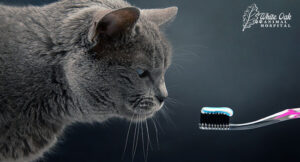 Start with short sessions, gently touching your cat’s mouth and teeth. Use your finger initially, then transition to a finger brush or a small cat toothbrush. Patience is key. Increase the duration of these sessions gradually as your cat becomes more comfortable.
Start with short sessions, gently touching your cat’s mouth and teeth. Use your finger initially, then transition to a finger brush or a small cat toothbrush. Patience is key. Increase the duration of these sessions gradually as your cat becomes more comfortable.
Positive reinforcement plays a significant role in training. Reward your cat with treats, affection, or playtime after each successful session. This creates a positive association with the dental cleaning routine. Over time, your cat will come to expect and tolerate, if not enjoy, these sessions.
Training your cat for cat dental cleaning offers numerous benefits. It reduces stress for both you and your pet and ensures effective cleaning. Proper training also helps prevent resistance and possible injuries during the process. A well-trained cat is more likely to have better oral hygiene, reducing the risk of dental diseases.
Using Too Much Force
Gentle brushing is essential for effective cat dental cleaning. Using too much force can harm your cat’s delicate gums and teeth. It can cause gum irritation, bleeding, and even damage the tooth enamel.
To avoid using excessive force, use a soft-bristled toothbrush designed for cats. Apply gentle pressure in a circular motion, focusing on the gum line where plaque tends to accumulate. Ensure you are calm and patient, allowing your cat to adjust to the brushing process.
Aggressive brushing can lead to various risks. It can cause your cat to associate dental cleaning with pain and discomfort, leading to resistance and fear. This makes future cleaning attempts more challenging. Additionally, it can exacerbate existing dental issues, leading to more serious problems such as gum recession and tooth loss.
By practicing gentle brushing, you protect your cat’s oral health and make the cleaning experience more pleasant for your pet. Gentle brushing ensures that plaque and tartar are effectively removed without causing harm.
Overlooking Gum Health
Gum health is a vital aspect of cat dental cleaning. Neglecting it can lead to serious dental problems. Common signs of gum disease in cats include red, swollen gums, bleeding, and bad breath. If left untreated, gum disease can progress to periodontal disease, causing pain, tooth loss, and infections.
Preventative measures are essential for maintaining healthy gums. Regular brushing helps remove plaque and prevent tartar buildup, which can lead to gum disease. Use cat-specific toothpaste and a soft-bristled toothbrush to clean along the gum line gently.
Regular veterinary check-ups are crucial for monitoring gum health. Your vet can identify early signs of gum disease and provide appropriate treatments. Additionally, consider professional dental cleanings as recommended by your vet to maintain optimal gum health.
Providing a balanced diet also contributes to healthy gums. Foods rich in essential nutrients support overall oral health. Dental treats and chew toys designed to promote gum health can also be beneficial.
Neglecting Diet and Chew Toys
Diet plays a significant role in your cat’s dental health. Feeding your cat a balanced diet helps maintain strong teeth and healthy gums. Dry kibble can be beneficial as it helps scrape away plaque and tartar. However, it’s important to choose high-quality cat food that meets all nutritional needs, and wet cat food is often better than kibble.
Incorporating dental-friendly treats and chew toys into your cat’s routine can also promote dental health. Dental treats are designed to reduce plaque and tartar buildup. Look for treats approved by veterinary dental associations to ensure their effectiveness.
Chew toys designed for dental health can help keep your cat’s teeth clean. These toys can massage the gums and remove food particles, reducing the risk of plaque buildup. Ensure the toys are safe and appropriate for your cat’s size and chewing habits.
Neglecting diet and chew toys can lead to dental issues. A poor diet may not provide the necessary nutrients for strong teeth and gums, leading to dental diseases. Without dental-friendly treats and toys, plaque and tartar can accumulate more rapidly.
Not paying attention to dental cleaning of cats can cost your pet’s health at a profound level. If the mistakes aforementioned are not corrected they may lead to severe health complications. Plaque and tartar buildup, resulting from inadequate dental care, can trigger unpleasant side effects such as persistent bad breath, painful gum disease, and tooth decay. Over time, these conditions can worsen, potentially leading to tooth loss and chronic infections.
In their advanced stages, if dental issues are left untreated, they’ll adversely affect your cat’s overall well-being. Periodontal infections from dental diseases can travel to other parts of the body such as the heart and kidneys and therefore are life-threatening. This not only affects the happiness and comfort levels of your cat but also reduces their life span.
In addition, there are severe monetary consequences of not being able to seek dental services. Treating late-stage oral disease is costly, and some interventions include extreme measures. On the other hand, check-ups and specific precautionary actions are generally cheaper and far less unsettling for you and/or your pet.
Prioritizing regular cat dental cleaning is paramount for the health and well-being of your beloved feline companion. By incorporating simple dental care practices into your routine, you can significantly enhance your cat’s overall health and happiness.
 At White Oak Animal Hospital, we understand the importance of comprehensive pet care, including dental health. With over 28 years of experience, our dedicated team offers integrative options that go beyond traditional veterinary care. Our services include TCVM (Traditional Chinese Veterinary Medicine) telemedicine consultations, providing holistic approaches to enhance your cat’s health.
At White Oak Animal Hospital, we understand the importance of comprehensive pet care, including dental health. With over 28 years of experience, our dedicated team offers integrative options that go beyond traditional veterinary care. Our services include TCVM (Traditional Chinese Veterinary Medicine) telemedicine consultations, providing holistic approaches to enhance your cat’s health.
Regular cat dental cleaning at our hospital not only ensures your cat’s teeth and gums are in optimal condition but also allows us to detect any potential issues early. Early detection can prevent the progression of dental problems into more serious health concerns, ultimately saving you and your pet from unnecessary discomfort and costly treatments.
We encourage you to schedule a consultation with our experienced veterinarian at White Oak Animal Hospital. Whether it’s for routine dental cleaning or specialized TCVM consultations, our team is dedicated to providing the highest standard of care for your furry family member.
Investing in your cat’s dental health today ensures a healthier and happier tomorrow. Contact us at White Oak Animal Hospital to learn more about our services and how we can support you in maintaining your cat’s dental wellness.
Frequently Asked Questions
How often should I clean my cat’s teeth?
Regular cleaning is key to maintaining your cat’s dental health. Brushing a few times a week can help prevent plaque buildup and dental diseases.
Can I use human toothpaste for my cat?
No, it’s crucial to use toothpaste specifically formulated for cats. Human toothpaste contains ingredients that can be harmful if swallowed by cats. Pet-safe toothpaste is designed to be safe for ingestion and comes in flavors that cats find palatable.
What are the signs that my cat needs a dental cleaning?
Watch out for signs such as bad breath, red or bleeding gums, difficulty eating, pawing at the mouth, and excessive drooling. These can indicate dental issues that require professional attention. If you notice any of these signs, consult your veterinarian for a thorough dental examination.
Are dental treats and toys effective for maintaining my cat’s dental health?
Yes, dental treats and toys can complement regular brushing by helping to reduce plaque and tartar buildup. They work by encouraging chewing and saliva production, which can help keep teeth cleaner. However, they should be used as part of a comprehensive dental care routine that includes regular veterinary check-ups and professional cleanings.
What should I do if my cat resists dental cleaning?
If your cat is resistant to dental cleaning, start slowly and use positive reinforcement techniques. Introduce the toothbrush and toothpaste gradually, and reward your cat for cooperation. If resistance persists, consult your veterinarian for advice on alternative methods or to schedule professional dental cleanings.
Related Posts
-
What Are The Common Types Of Cat Cancer?
Cat cancer is an unfortunately common pet malady. Pets develop cancer for a variety of…
-
Easy Cat UTI Prevention
Cat UTI prevention is simple once you understand the root cause. Your veterinarian can help…
-
Facts About Cat Kidney Failure
If your pet experiences any symptoms of cat kidney failure, immediately take them to your…
-
Eastern and Western Cat Cancer Treatments
As cats age, they often get lumps and bumps.In veterinary medicine, these are called masses…


